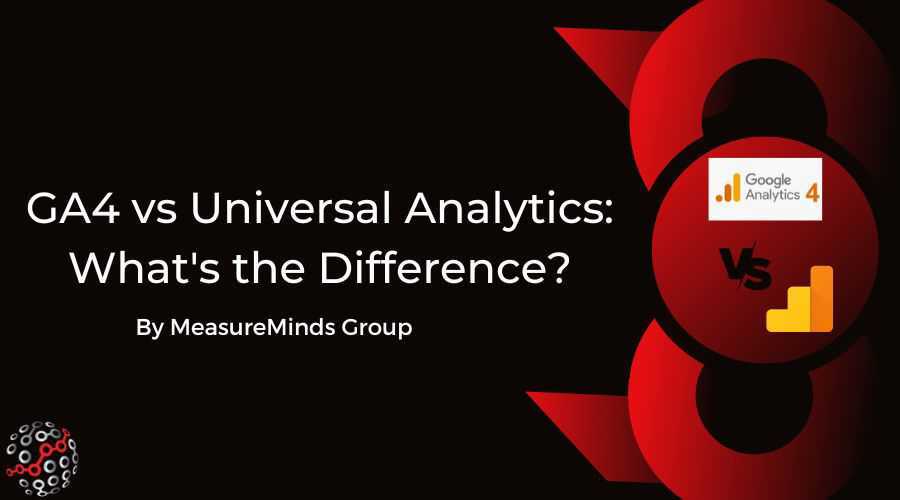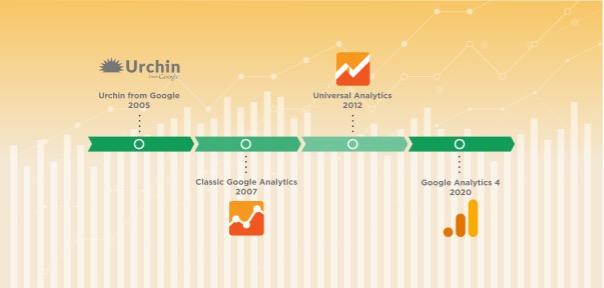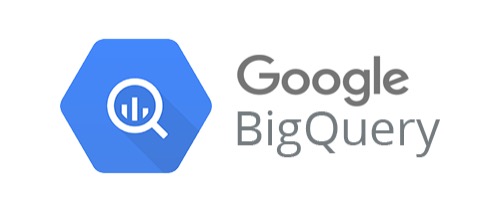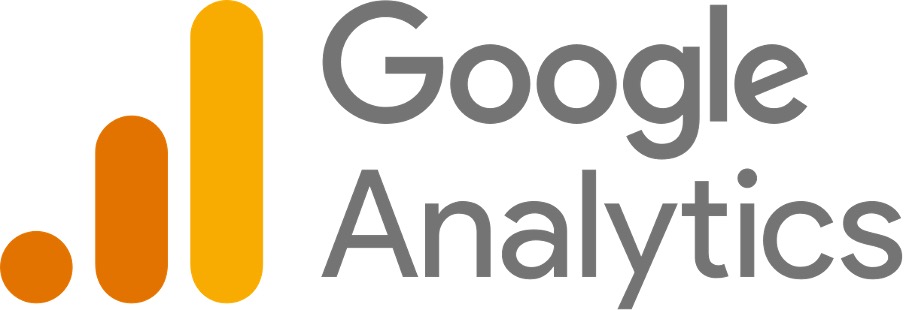
GA4 vs Universal Analytics: What’s the Difference?
An estimated 30-50 million websites are taking advantage of GA. That’s because good digital analytics is essential for producing the most targeted and effective marketing. And as Google starts to close the curtains on Universal Analytics (UA) and introduces Google Analytics 4, we need to stay up-to-date. Which begs the question: GA4 vs Universal Analytics, what’s the difference?
Why is data analytics important?
This might seem like a stupid question. Data analytics is now commonplace for businesses across the world. But if you’re a new business or a business that is moving online for the first time, you might not know the answer.
Effective data analytics is what separates the good marketing campaigns from the bad. We no longer have to guess the sort of marketing materials that might appeal to a specific demographic or audience. And that’s all thanks to Google Analytics. GA lets us learn very specific information about individual users at the click of a button. We can learn a user’s demographic, country of origin and even the content that they lingered on.
This information can then go on to build wider user profiles that can then be used in your marketing. Data analytics make the crutch of most modern advertising campaigns. Have you noticed that the advertising you see online is directed to products or services that interest you? Well, this is a result of analytics and remarketing.
Analytics is quickly becoming an essential part of running a business. Studies show that 71% of consumers feel frustrated when a shopping experience is impersonal. Now, more than ever, people like content to be tailored to them. If you don’t take advantage of this, you can bet your competitors will. By choosing the most up-to-date analytics software you can keep ahead of the game.
What’s the difference between Google Analytics and Google Analytics 4?
Well, nothing. Google Analytics 4 is simply the name for the newest version of Google Analytics. The end.
Joking! To properly understand why GA4 is different to what preceded it, it’s important to have an understanding of how the software has evolved over time.
A timeline of Google Analytics

Urchin from Google – (March 2005)
It all began when Google bought Urchin. Urchin was a web analysis company delving into innovative ways of learning about traffic online. It would become the first version of Google Analytics. It lasted until 2012 when it was discontinued in favour of the later version of GA, Universal Analytics.
Key features:
- An insight into the number of visitors that came to a site each day.
- The global location of traffic.
- Insights into new and returning visitors
- The ability to track the effectiveness of web traffic campaigns.
- The Source of web traffic.
Classic Analytics – (May 2007-2016)
By 2007, Google decided that it was time for a revamp. Introducing ‘Classic Analytics’. Classic was a more robust option of GA. It built on many of its predecessor’s features. As with Urchin, Classic Analytics was eventually discontinued, being merged with its successor in 2016.
Key features:
- The opportunity to track e-commerce transactions
- Greater customisation features.
- A more accessible display.
- The ability to analyse subsets of traffic.
- The option to create custom reports in order to better organise data.
Universal Analytics – (March 2012-2023)
In 2012, Google decided that it was once again time to make a change to its program. Introducing Universal Analytics. If you’ve used GA before, this is probably the version that you are most familiar with. As with Classic Analytics, Universal Analytics brought a whole range of features to the table. Although it will be discontinued in 2023.
Key Features:
- New tracking codes to provide more data about users.
- The ability to track the same user across different devices.
- Integration with Google Ads.
- An improved User Interface.
- Real-time reports to better understand user behaviour.
How has Google Analytics 4 changed things?

Despite all the changes and innovations that had driven Google Analytics, Google was still not fully happy. In late 2020 they launched Google Analytics 4. It’s fair to say it has shaken things up quite dramatically.
If you have set up Google Analytics 4, you’ll know that Google fundamentally changed the ways in which data was collected. Now, each user interaction was classed as an ‘event’. With GA4 you can program custom events. This means that you can set specific parameters on your site for measurement. This basically gives you the power to measure any area you like, from downloads to page scrolling.
Alongside events, GA4 improves on mobile tracking. With GA4 it gives you the option to track users visiting from mobile and other devices. This provides a 360 ° view of your customer’s actions.
So, in essence, GA4 isn’t a new program. It’s the latest effort in the long process of improving Google’s data analytics package.
The differences between GA4 and Universal Analytics
There’s a long list of benefits of Google Analytics 4 that make it better than Universal Analytics. However, change can be something to be wary of. But don’t panic! Universal Analytics isn’t going anywhere anytime soon. In fact, Google currently advises running it in tandem with GA4.
Different data measuring models
With Universal Analytics, interactions were measured based on sessions and page views.
GA4’s new model means that any user interaction that takes place on your site is automatically categorised as an ‘event’.
Google has broken events into 4 different categories:
Automatically collected events
These events are activated by basic interactions with your app or site. They’ll start being tracked as soon as you install the GA4 base code on your site. Most automatic events don’t need additional code. These events include:
ad_click: When a user clicks an ad. (app only).
first_visit: The first time a user visits a website or launches an Android instant app with Analytics enabled.
in_app_purchase: When a user completes an in-app purchase, including an initial subscription, that is processed by the App Store on iTunes or by Google Play. (app only).
Google provides a list of automatically collected events.
Enhanced Measurement events
These events allow for the measurement of interactions with content from within the Google Analytics interface. Google recommends that before activating Enhanced Measurement, you are clear on the sorts of data that will be collected. These events include:
Scrolls: The first time a user reaches the bottom of each page.
Video engagement: When a user views a video.
Site search: Each time a user performs a site search, indicated by the presence of a URL query parameter
Recommended & Custom events
Google has also compiled a list of recommended events for your site or app. To save you time that would otherwise be spent scrolling, Google has categorised each event by industry. These cover:
- Retail/Ecommerce
- Jobs, Education, Local Deals, Real Estate
- Travel (Hotel/Air)
- Games
Google has also implemented custom events. These are arguably one of the biggest features of GA4. They can be based on whatever metric you decide. Currently, Google limits us to 500 events for each Google Analytics property.
You can connect Google Analytics 4 to BigQuery

If you’re a big business dealing with lots of data, this one is for you. And this is definitely one of the biggest benefits of GA4 vs Universal Analytics. The best part is that connecting GA4 with BigQuery is completely free. It used to cost $150,000 to buy GA360 in order to access this feature.
What is BigQuery?
You’re likely gathering data from all kinds of places. Be it your app, website, email or marketing campaigns. Sometimes, it means you’re gathering lots of data from a variety of locations worldwide. With all these data sets, you need a location to store everything.
This is probably going to blow a hole in your budget. You’re not just paying for the location but maintenance and security. There’s also the issue of processing all of this data. Sometimes an analytics report can take days to formulate. That’s time you could have spent improving your marketing campaigns and growing your brand.
Google Analytics 4 is more noob friendly
Although you may have heard a lot of backlash online about GA4. This is usually from advanced users complaining about missing features. Which is totally justified. We will be writing an article about the missing features of GA4.
However, if this is your first delve into analytics, it can be quite daunting. The amount of information can be difficult to handle. But with GA4 vs Universal Analytics, there are more built-in features that can help you find information about website users.
There are also a huge number of custom settings that you can apply to GA4. The good is that you don’t have to implement these if you don’t want to. GA4’s automatic reports provide you with a wealth of data, custom settings only enhance the data that you’re receiving. So for the standard user GA4 tends to be easier to use.
Google Analytics 4 builds on old technologies
Although Google Analytics 4 only arrived in 2020, Google had been laying the groundwork many years prior. GA4 was built on the back of a few different technologies developed by Google. The utilization of these technologies make some significant differences between GA4 vs Universal Analytics.
Google Signals
Dealing with ‘anonymous’ users will be something of a pet peeve for many website owners. Anonymous users are people that have not entered any identifiable information onto your site or have not agreed to your cookie consent banner.
Being able to identify these users and include them in your analytics reports is essential for good data. It’s now possible to use Consent Mode with Google Signals to upscale conversions. That way, conversion data that would ordinarily be missing when someone rejects your cookie banner, is now made up for with upscaling. This is a huge win for GA4 vs Universal Analytics. We have an article more about this and other GA4 features.
Firebase Analytics
Over the last ten years, people on average have acquired new devices and ways of getting online. This has presented a problem for businesses that operate online. When people own so many devices, they are likely to access your website from different sources. In fact, Google themselves found that 90% of people switch between screens to complete tasks. This includes using an average of three different combinations every day.
How can we track the same user across different devices? Firebase Analytics was Google’s attempt to answer that question. The program helped to better track returning users from different devices. Firebase introduced the idea (now found in Google Analytics 4) that each user interaction would be classed as an individual event.
When should I make the switch to Google Analytics 4?
Ideally, as soon as possible. Google Analytics 4 is packed with features that can improve your digital analytics. GA4 features more customization than ever. It’s got better data collection and deeper integration with other services than ever before.
Universal Analytics discontinue. So get in early with GA4 so you can be a set ahead of your competitors.
Get ahead with Google Analytics today
So, as we’ve established, there is no difference between Google Analytics 4 and GA. Rather, GA4 is the latest result in Google perfecting its analytics formula. If you’re not using analytics on your website or app, there’s no better time to start than today.
Every day spent without effective analytics, is a day falling behind your competitors. With the right data, you have the potential to transform your marketing and your business. Put simply, there is no path to success for a business online without the right data.
Beat the competition

It is easy to see the importance of good data management. It would be understandable, however, if this still seems quite daunting. We have helped many businesses, in sectors from banking and Local Government to healthcare, to navigate the hurdles involved and deliver real benefits to their organisation. We would love to help your business to thrive.
- GTM Tag Diagnostics: Check the Quality of Your GTM Container - 03/07/2024
- Adobe Launch vs Google Tag Manager: GTM vs DTM - 01/07/2024
- The Future of GA4: Where do we go From Here? - 25/06/2024